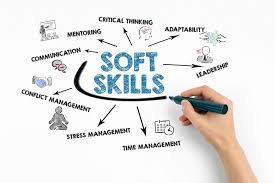Entrepreneurship and the Power of Soft Skills
When people think about entrepreneurship, they often imagine innovation, financial risk-taking, and strategic planning. While these technical and business skills are essential, soft skills play an equally critical role in building and sustaining a successful business. Soft skills, sometimes called “people skills,” include communication, leadership, adaptability, creativity, and emotional intelligence. For entrepreneurs, these skills can be the difference between an idea that fails and a venture that thrives.
Why Soft Skills Matter in Entrepreneurship
- Effective Communication
Entrepreneurs need to communicate their vision clearly—to investors, employees, customers, and partners. Strong communication skills ensure that ideas are shared persuasively, negotiations succeed, and teams remain aligned with business goals. - Leadership and Team Management
Entrepreneurship is rarely a solo journey. Building, motivating, and leading a team requires leadership soft skills. A good entrepreneur inspires trust, empowers others, and knows how to delegate tasks effectively. - Adaptability and Problem-Solving
Markets change quickly. An entrepreneur with adaptability can pivot strategies, embrace innovation, and find creative solutions when challenges arise. This flexibility often determines long-term survival in competitive industries. - Networking and Relationship-Building
Business opportunities often come through networks. Strong interpersonal skills help entrepreneurs create meaningful relationships with mentors, investors, suppliers, and clients. - Emotional Intelligence
Understanding emotions—both your own and others’—is key in high-pressure business environments. Emotional intelligence helps entrepreneurs manage stress, resolve conflicts, and foster positive workplace cultures.
Soft Skills Every Entrepreneur Should Develop
- Resilience: The ability to bounce back after failure.
- Critical Thinking: Making informed decisions under uncertainty.
- Negotiation: Finding win-win outcomes with partners and stakeholders.
- Time Management: Balancing multiple priorities effectively.
- Creativity: Thinking outside the box to innovate and differentiate.
How to Strengthen Entrepreneurial Soft Skills
- Continuous Learning: Take part in workshops, leadership programs, or online courses focused on soft skill development.
- Seek Feedback: Regular feedback from mentors, peers, and employees helps identify areas for growth.
- Practice Self-Reflection: Entrepreneurs should analyze their reactions, decisions, and communication styles to improve over time.
- Networking Opportunities: Attending events and engaging with diverse professionals enhances interpersonal skills.
Conclusion
Entrepreneurship is not just about business models and financial projections—it’s about people, adaptability, and vision. Soft skills are the foundation that enables entrepreneurs to transform ideas into sustainable businesses. By investing in personal development and strengthening these skills, aspiring entrepreneurs position themselves for long-term success in an ever-changing world.

